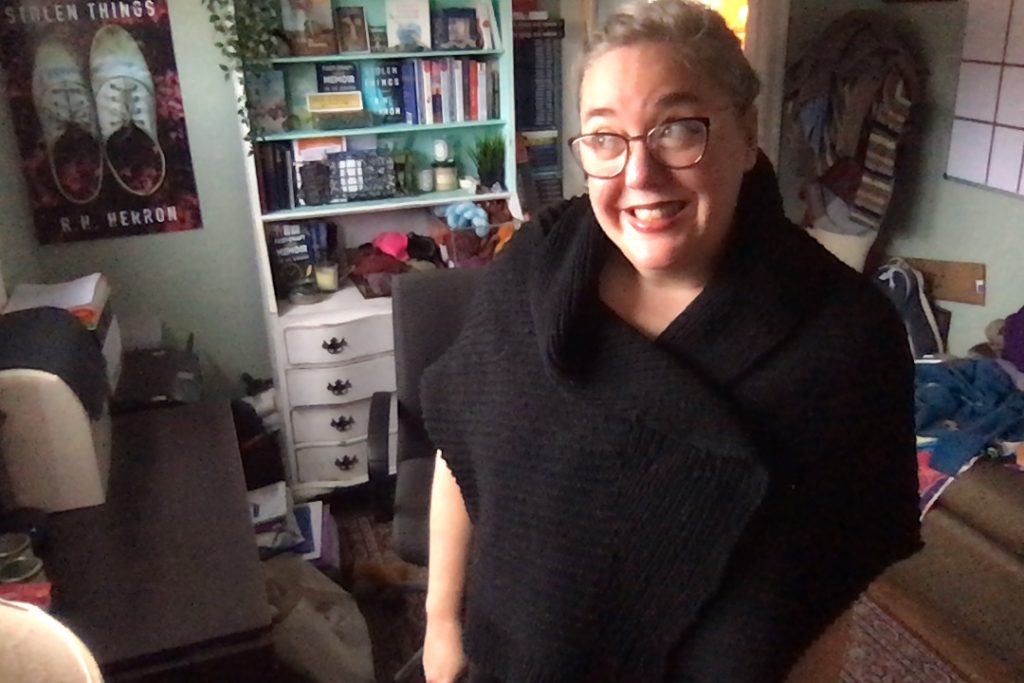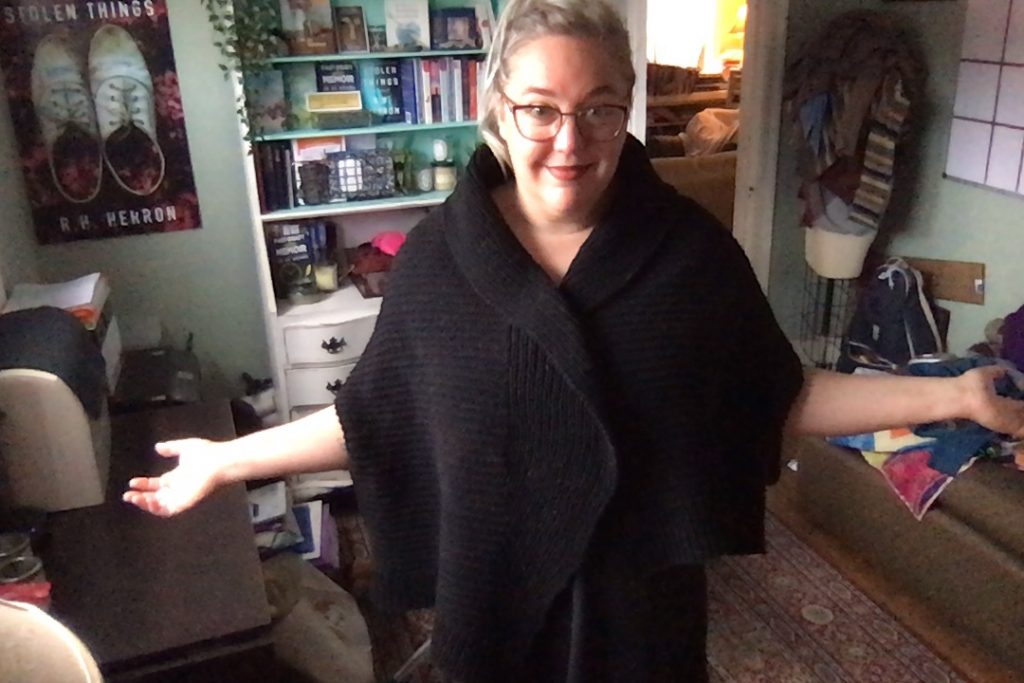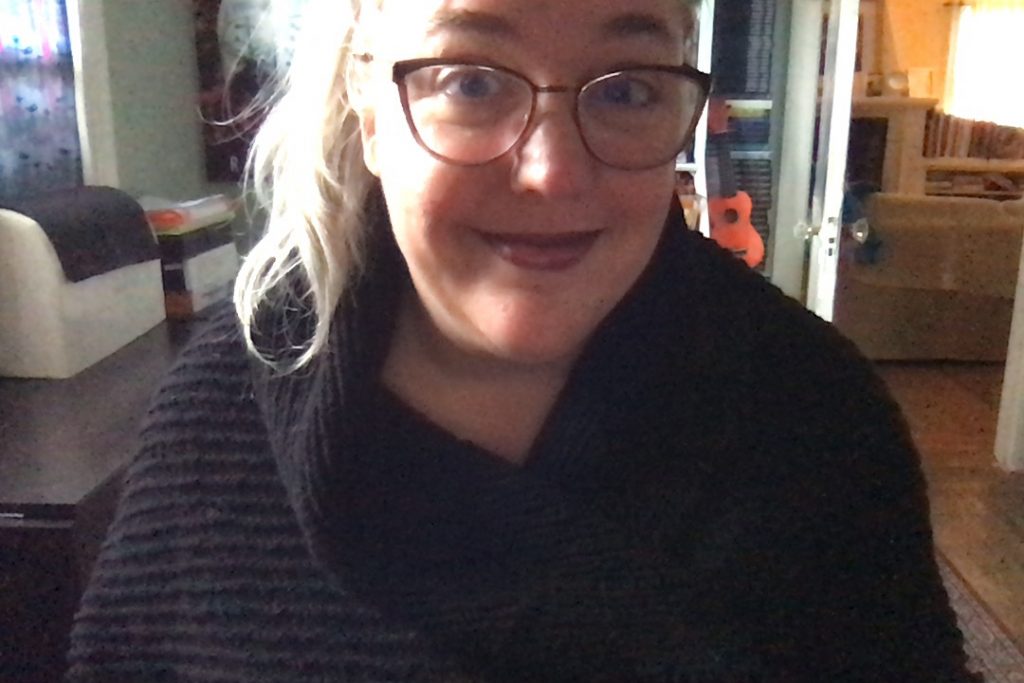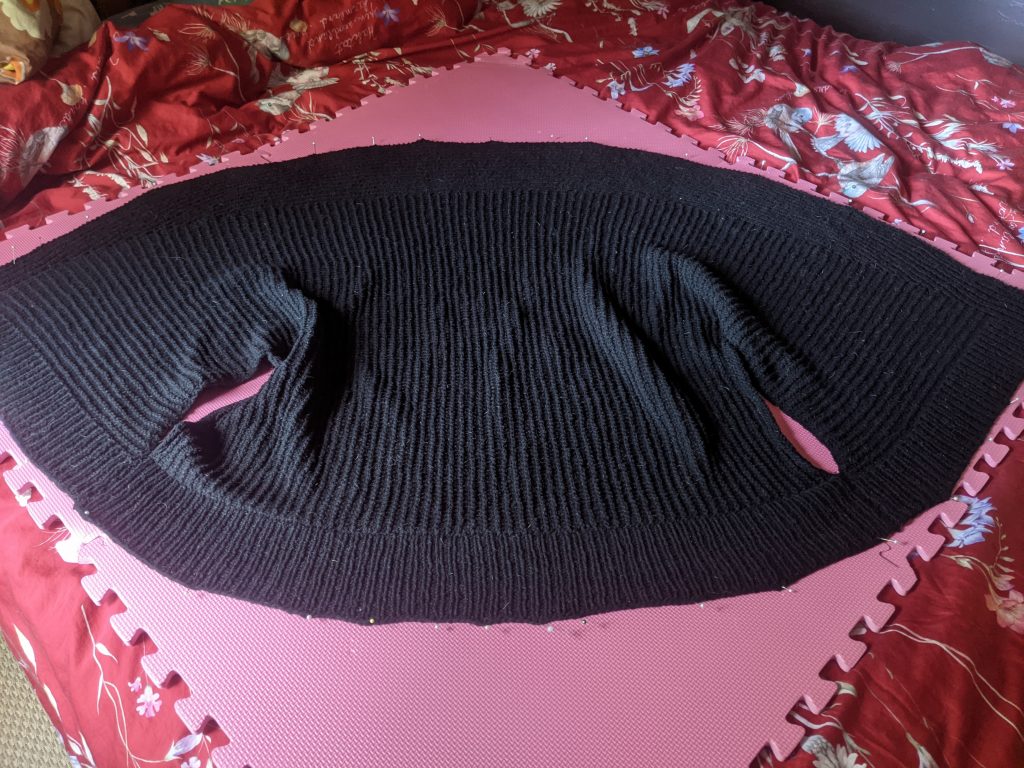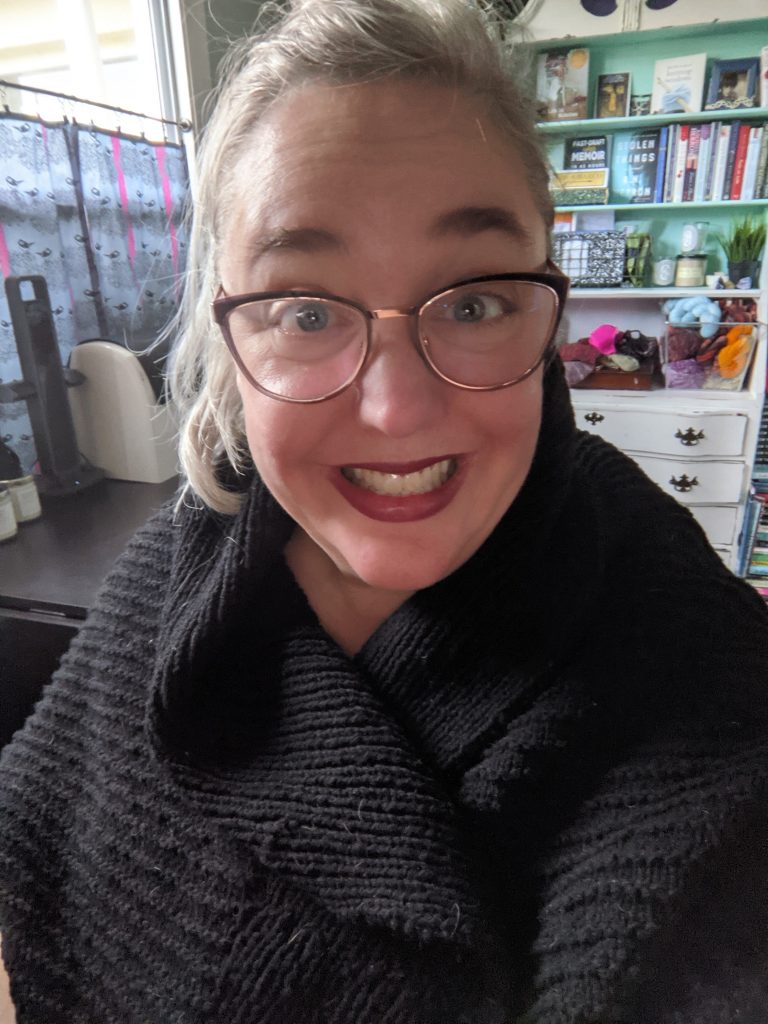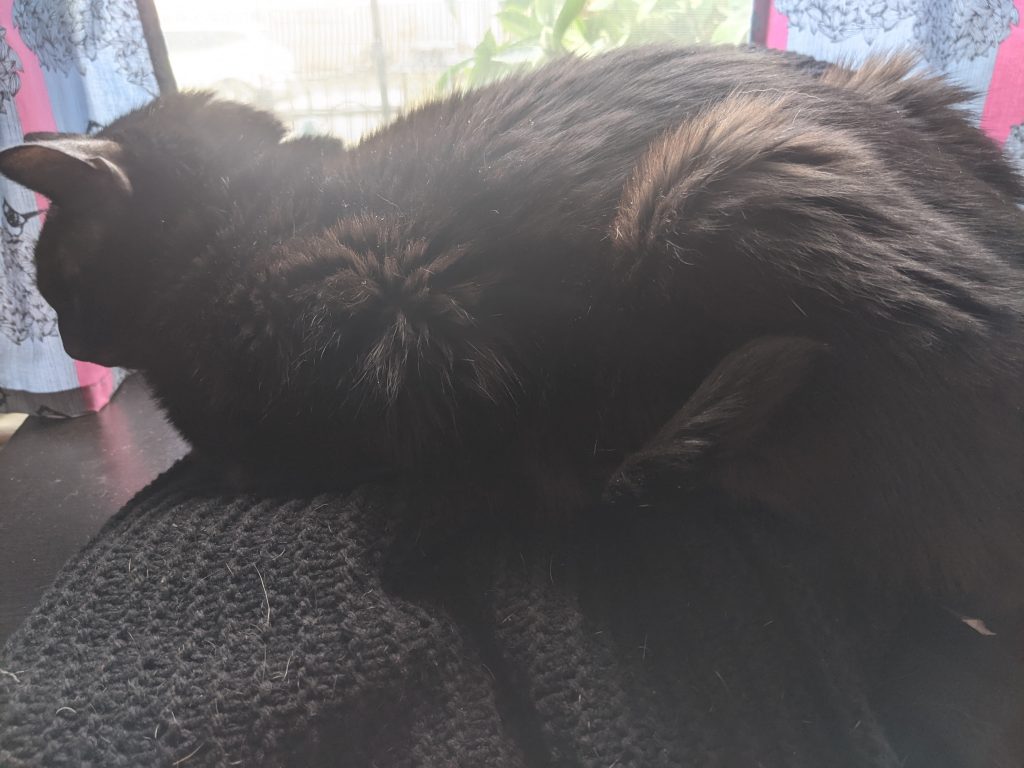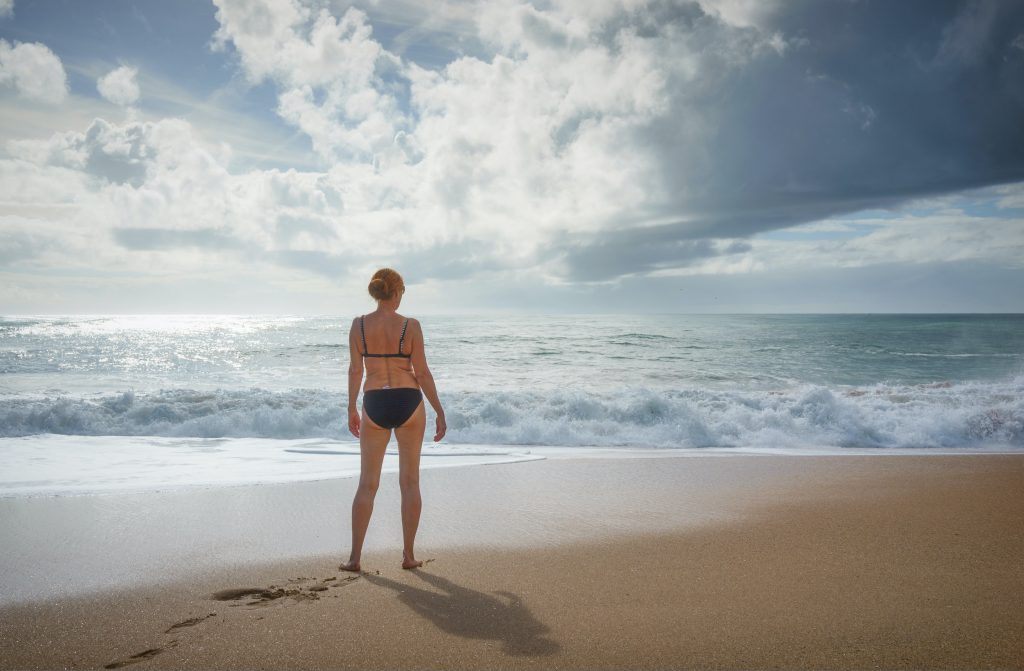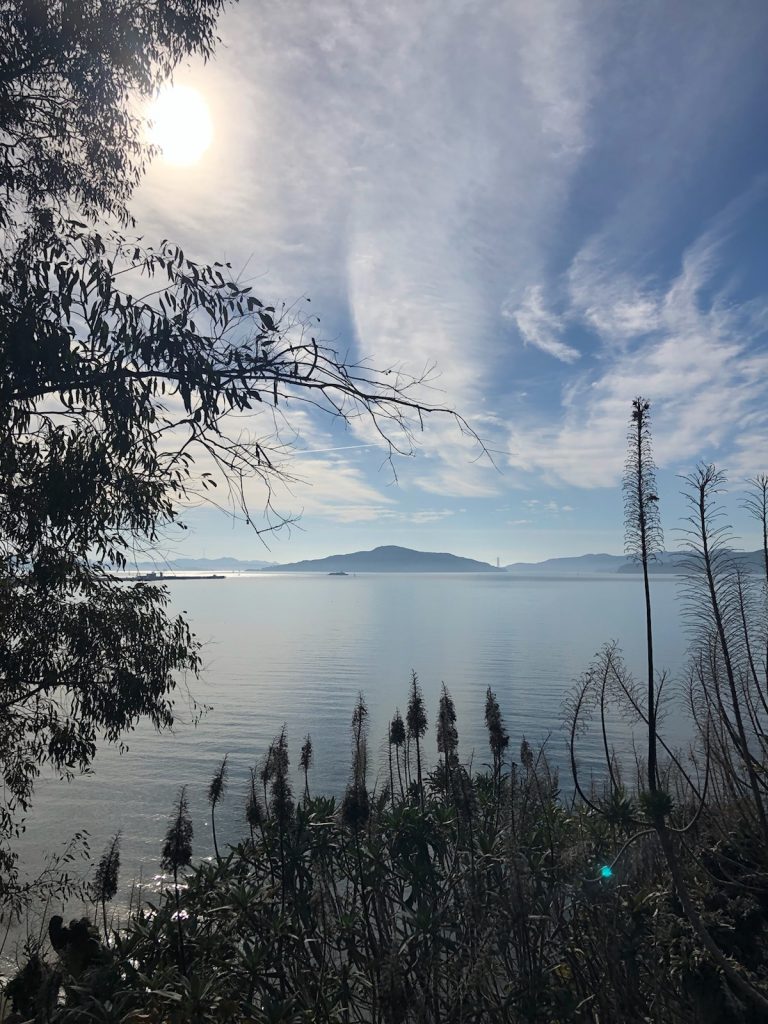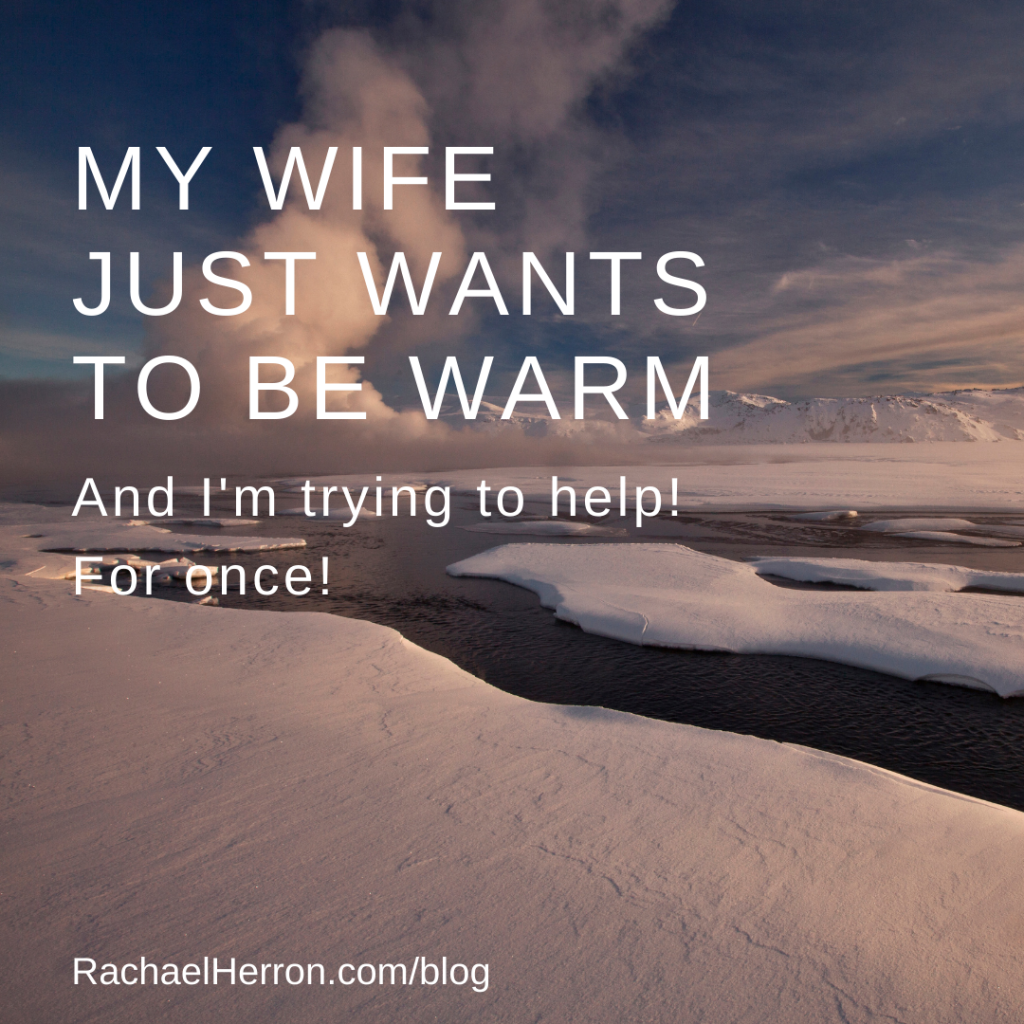When I was a young woman, I loved the wearing purple poem. You probably know the one. In the nineties, it was everywhere – there was a collection of stories made into a book we couldn’t keep on the bookstore shelves. There were posters. The Red Hat Society came about because of it. It was the Mary Englebreit of aging gracefully or, really, with joy.
In case you don’t know it, here it is.
I’ve been wearing purple, metaphorically, all my life, but sometimes it was hidden. I made sure that I could see those bright flashes of myself, but I didn’t trust very many others to understand.
During the time of hiding my purple, I dated a man for a while who lived on the other side of a tunnel from me.
On my side of the tunnel was a whole world in all its many flavors. Where I lived, there were taco trucks and cars with bumpers secured with bungee cords and punks who squatted with other punks who loved metal-bluegrass and families with young children who painted with chalk that left the sidewalks and brought their flowers and rainbows onto the streets themselves.
On my side of the tunnel were people shouting and rejoicing out open windows. I could hear three different kinds of music in my backyard, strains of mariachi mingling with soul mixed with a touch of opera. People drove Jaguars and fixies and scrapers and longboards and shopping carts and Ford Pintos.
On his side of the tunnel were gates. Gated communities, he said, were safe. The walls were all gray (except he called them eggshell and pewter and smoke).
If safety felt like the color gray, I wanted red and yellow and orange and blue and the muddy mix they make when it rains.
I broke up with him because of that tunnel, because of the way I lost myself when I went through it. He wanted to put me behind a gate, to keep me safe.
But I wanted to leap. To stretch my arms for things out of my reach. Even if I couldn’t pull what I wanted off the shelf, I wanted the item I desired to tremble as my fingertips brushed it—I’d get there one day. I’d pull it down eventually.
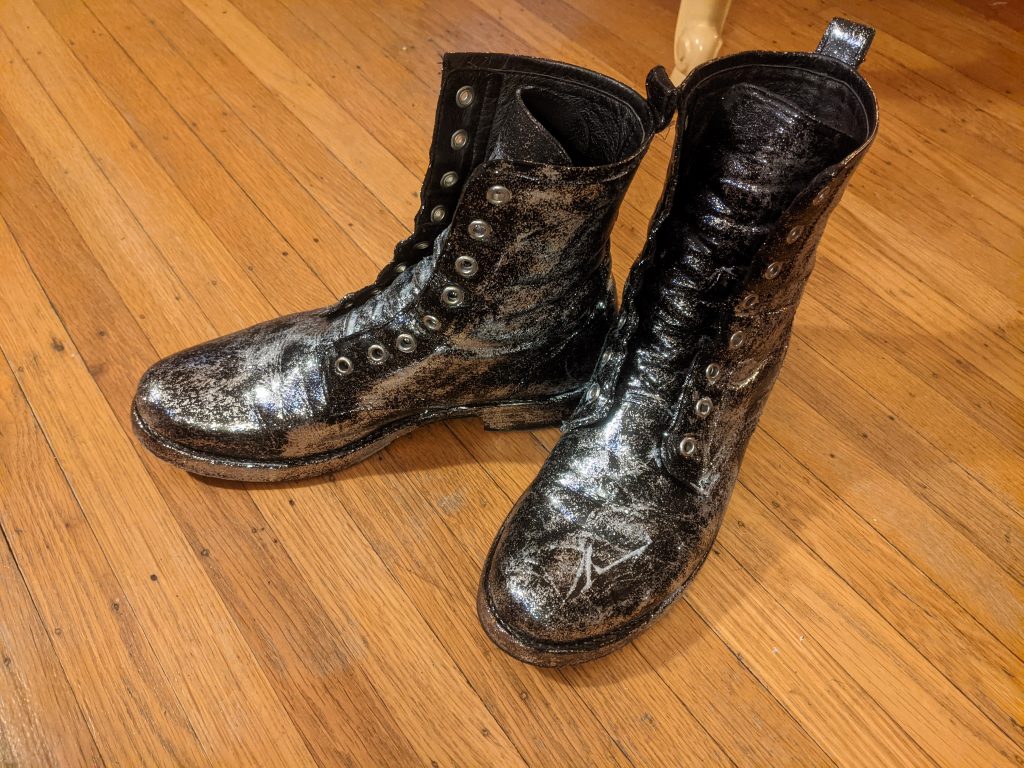
The other day, I painted my old black Frye boots silver. They’d come slightly sparkly when I’d bought them, actually. They were the gated-community version of silver. They glinted in the light, but only politely, only if you took the time to look.
The silver wore off, though, and while they become my favorite, most comfortable shoe, I missed their sparkle. So I bought a pot of leather paint and took out an old paintbrush and now they are SILVER. They don’t glow – they sparkle. They are vivacious. They greet guests at the door and ply them with liquor even before they step across the threshold. As I stomp my merry stomp, they leave dazzlings of glitter behind. They do not apologize for their joy, for their full-throated shout of pleasure.
They are even better than purple.
Back in my early twenties, I didn’t know the poem’s title. We just called it the “wearing purple” poem, and it was a shorthand for what we wanted to be someday—free, confident, and most of all, ourselves.
The title is actually: WARNING. A British poet named Jenny Joseph wrote it in 1961, and it was voted Britain’s most loved post-war poem in 1996.
But it’s more than just a fun poem about a woman wearing her slippers in the rain (a thing I did yesterday, actually).
It’s a WARNING about a woman who is about to stop apologizing for being exactly what she wants to be.
I think Jenny Joseph would approve of my assertively glittering boots. But isn’t that point? I’m not asking her. Or anyone.
I’m just letting my luminescent feet dance my legs to where I want most to go.
